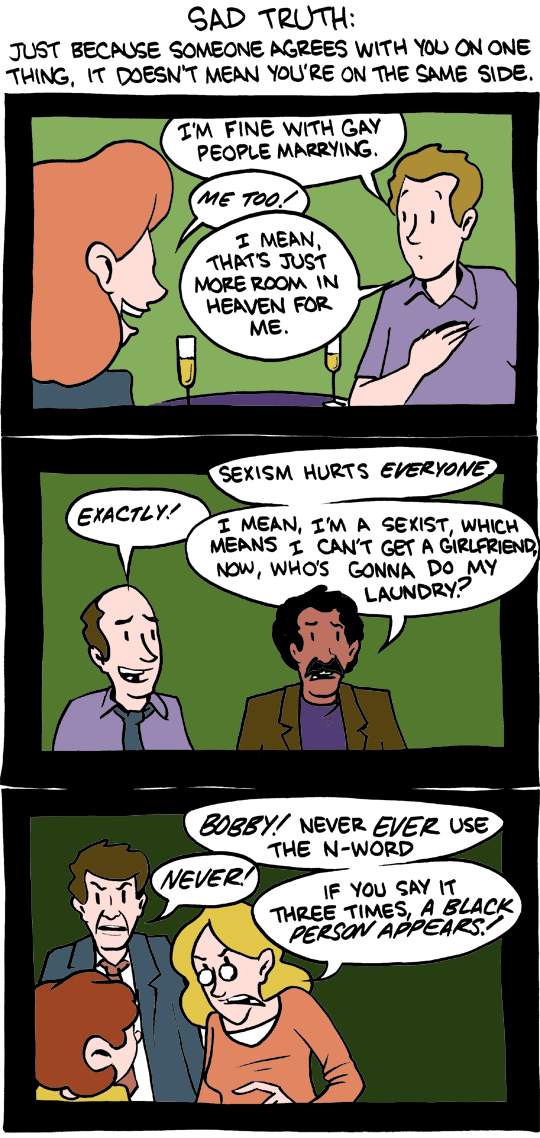Here, in all it's glory- a final essay that is perhaps too shot on Michel Foucault.
Foucault: Prisons, Sexuality, Modern Society
Michel Foucault, the French philosopher and cultural theorist who wrote The History of Sexuality and other works, was a radical thinker and very influential to society today. He was an advocate of discourse and its reductive power, and he spent a great deal of time discussing the normalization of society. He argued that when a subject is discussed, the subject itself becomes normalized and accepted. He also talked about something called “The Perverse Implantation,” which posits that the more a subject is talked about, the more it can become a subconscious desire, which goes a long way in explaining the amount of corruption in churches. Foucault’s philosophies and ideas fit in with the concept of radical romance. His views on modern society help explain the fixation on romance and the individual’s perception of it.
How society perceives romance has been greatly influenced by what can be called the “Hollywood ending.” Romance is when a man and a woman live “happily ever after” and leave behind their hardships to pursue a new life that is not only emotionally rich, but sexually fulfilling. Society has, for better or worse, been mechanized to believe that this is how a relationship should go, and woe unto the couple that strays from that path. Naturally, there is nothing wrong with wanting an exciting and positive relationship. People want to believe that they will stay with their partner and support them, learning more about themselves and maybe even becoming a better human being in the process. Foucault might argue that the film industry is trying to reach a specific end when it keeps creating romantic movies where this is the end that is reached. He may even argue that back in the earliest days of film, some bigshot saw that the film industry is an institution that can be used as a way to keep society mechanized. Much like schools and prisons, film can be a tool that keeps society controlled and docile.
The film industry has been used politically before, and to terrifying levels of effectiveness. Any sort of media can be used for propaganda. This can be both positive and negative. Film can be beautiful art, and it can be universally shared with the power of the internet and its far-reaching applications.
All this is to say that no matter what, for better or worse, society lives in an increasingly connected age. Cultures are shared at the speed of the internet, authors can be translated into any language and distributed worldwide. Whether this leads to different cultures coming together and learning about each other to positive effect or global whitewashing remains to be seen. Disparity can lead to strife, as history has shown, but it can also lead to growth. Foucault’s views on normalization point to the efficiency that comes out of it, not simply the negatives. His cold and calculated view on the efficiency of normalization could lead to some becoming frustrated for him not having a simple, cut-and-dry point of view.
Economist-philosopher Karl Marx states his case plainly: the mechanization of society is not only dangerous because it creates class conflict, but it actually takes the passion out of the average citizens’ life. No radical romance for the Free Trade enthusiast. He credits feudal society as giving common men and women goals and passion to work towards them. In a normalized society where selfish profit is the only goal, there is no room (in Marx’s mind) for love of your fellow man and certainly no room to have a passionate and loving relationship. Apparently post-industrial society capitalists are cold, selfish celibates.
Foucault advocates can argue that society has been institutionalized to believe in personalized, radical romance. As has been stated, the film industry is an institution with an uncommon level of power, particularly in American society. It is highly probable that children in this generation have been raised watching Disney films and their depictions of prince charmings and beautiful princesses, daring adventures and passionate reunions. Such escapades are read about daily and mooned over in many mediums, even fine art and music. It has become an expectation of this generation to be swept off their feet in romance, and to not be satisfied until they are. Perhaps this has something to do with the nation’s high divorce rate, with the rate being something like half of all young married couples getting divorced within a year or two. The young couple does not feel the burst of romance, the surge of music, the flock of bluebirds building a wedding dress out of spider silk and fallen leaves, and becomes disgruntled that the reality may not be so much like a fairy tale. It is impossible to say that romance is some kind of formal institution run by a state, but perhaps it has seeped into the subconscious of the United States over generations.
Ultimately, Foucault has a cold, if moderately accurate view of how society functions. Society wants to form groups and will respond to a strong leading impulse, particularly if the rewards outweigh the costs. In institutionalizing the concept of radical romance, society learns to accept it and then acts on it when the timing is correct.




